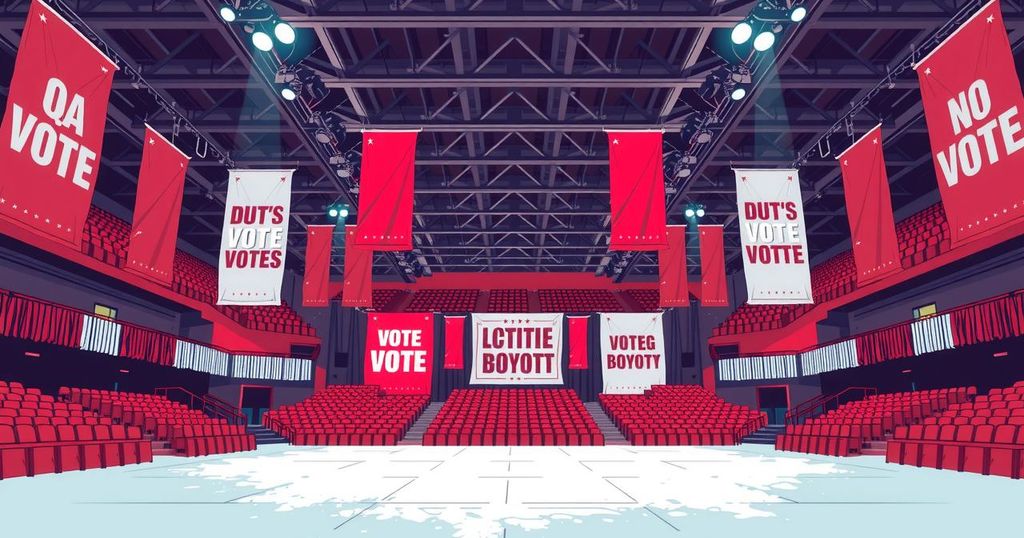Venezuela’s Opposition Faces Internal Divisions Over Election Boycott
Venezuela’s opposition has urged voters to boycott upcoming regional elections, a strategy that has led to deep divisions within the party, including rifts in influential political families. Critics of the election process deem it illegitimate, while others believe participation is crucial for building democratic momentum. This internal conflict could complicate the opposition’s future and impact the electorate’s trust amid ongoing economic challenges.
Venezuela is currently facing a significant political crossroads as the opposition calls for a boycott of the upcoming regional elections. This decision, marked by controversy, has fragmented the opposition party, revealing deep divides within their ranks. Notably affected are some of Venezuela’s most prominent political families, whose historic roots and influence are being challenged by this approach.
The opposition argues that participating in these elections, scheduled for November, would legitimize what they deem an unfair and undemocratic electoral process. They claim that the government led by President Nicolás Maduro exploits election mechanisms to maintain control. Advocates for the boycott emphasize that true democracy cannot flourish under such conditions where legitimacy is questionable.
However, the strategy has not been universally accepted. Within the opposition, voices calling for electoral participation contend that boycotts could further alienate voters and weaken their chances in future contests. The tension is particularly pronounced in families with deep political heritages, where some members advocate for participation while others staunchly support the boycott, highlighting the complexity of the situation.
The ramifications of this division extend beyond political strategy. A fractured opposition could inadvertently benefit the Maduro administration, which has faced persistent criticism for its handling of the nation’s economic and social crises. As the opposition grapples with their next steps, it becomes clear that their internal discord poses risks to the entire movement.
In the backdrop of these tensions, there is a keen awareness that the socio-economic struggles affecting Venezuelans are paramount. Citizens experience daily challenges ranging from food shortages to rampant inflation, intensifying calls for a unified approach to reform. Nevertheless, with the election date drawing closer, the opposition’s internal rift may hinder their ability to present a cohesive front to the electorate.
As the electoral contest nears, the Venezuelan opposition faces a critical decision point. The choice between participating in what many consider a flawed process or boycotting presents both challenges and opportunities. Addressing the diverging opinions within their ranks and uniting against the backdrop of a difficult political landscape will be crucial for the future of the nation’s democracy.
The Venezuelan opposition’s call for a boycott of the regional elections has exposed significant fractures within the party. While some leaders argue this will undermine the Maduro administration, others warn that absent participation could alienate voters. As tensions rise and citizens continue to face dire economic conditions, the internal discord may not only complicate the opposition’s electoral strategy but also affect their prospects for unifying against the current regime.
Original Source: www.npr.org




Post Comment